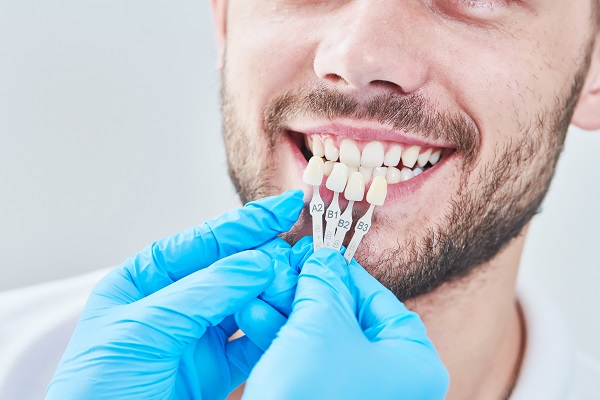Restorative dentistry offered by the dentist in Gladstone is a branch of dentistry that focuses on repairing and restoring damaged or decayed teeth to their natural form, function, and beauty. This comprehensive approach to oral care not only improves the appearance of your smile but also enhances your overall oral health and well-being.
What is Restorative Dentistry?
Restorative dentistry is a branch of dentistry that focuses on repairing and restoring damaged or decayed teeth to their natural form, function, and beauty. It encompasses a range of procedures and treatments designed to address various dental issues. The goal of restorative dentistry is to improve the appearance, functionality, and overall health of the teeth and mouth, while also enhancing the patient’s quality of life. By repairing and restoring damaged teeth, restorative dentistry can help you regain confidence in your smile, improve your ability to chew and speak, and reduce the risk of further dental problems.
What does restorative dentistry address?
Restorative dentistry encompasses a range of procedures and treatments designed to address various dental issues, including:
- Tooth decay and cavities: Repairing teeth damaged by decay or cavities.
- Chipped, cracked, or broken teeth: Restoring teeth that are damaged or broken.
- Missing teeth: Replacing missing teeth with artificial teeth, such as dentures, bridges, or implants.
- Worn-down teeth: Repairing teeth that are worn down due to grinding, erosion, or other factors.
- Gum disease and recession: Treating gum disease and restoring receded gums.
- Tooth erosion: Repairing teeth damaged by acid erosion.
- Tooth sensitivity: Addressing tooth sensitivity caused by decay, cracks, or other factors.
- Bite problems: Correcting issues with the way the teeth fit together.
- Dental trauma: Repairing teeth damaged due to injury or trauma.
- Congenital defects: Correcting teeth that are malformed or discolored due to genetic conditions.
What are the procedures involved in restorative dentistry?
Restorative dentistry involves a range of procedures to repair and restore damaged or decayed teeth. Some common procedures include:
- Fillings: Tooth-colored fillings to repair cavities and decay.
- Crowns: Custom-made caps to cover and protect damaged teeth.
- Bridges: Artificial teeth to replace missing teeth.
- Dentures: Removable or fixed prosthetics to replace multiple missing teeth.
- Root canals: Treatment to remove infected pulp and save the tooth.
- Dental implants: Artificial tooth roots to support crowns or bridges.
- Gum grafting: Surgical procedure to restore receded gums.
- Tooth bonding: Repairing chipped or cracked teeth with a tooth-colored resin.
- Veneers: Thin layers of porcelain to improve tooth appearance.
- Inlays and onlays: Custom-made fillings to repair large cavities.
- Crown lengthening: Surgical procedure to expose more of the tooth for restoration.
- Dental posts and cores: Supporting structures for crowns or bridges.
- Tooth-colored restorations: Natural-looking fillings, crowns, and bridges.
- Full-mouth reconstruction: Comprehensive restoration of all teeth.
What are the benefits of restorative dentistry?
Restorative dentistry offers numerous benefits, including:
- Improved oral function: Enhanced chewing, speaking, and overall oral performance.
- Enhanced appearance: Aesthetic improvements to boost confidence and self-esteem.
- Relief from pain and discomfort: Treatment of underlying issues to alleviate pain.
- Prevention of further damage: Proactive measures to prevent future dental problems.
- Boosted overall health: Connection between oral health and systemic well-being.
What does the restorative dentistry process involve?

The restorative dentistry process typically involves:
- Consultation and examination: Initial assessment to determine the best course of treatment.
- Treatment planning: Personalized plan to address specific dental needs.
- Procedure execution: Skilled and gentle implementation of the treatment plan.
- Follow-up care: Ongoing monitoring and maintenance to ensure optimal results.
Restorative dentistry is a vital aspect of oral care, offering a comprehensive solution to repair and enhance your smile. By addressing dental issues and preventing further damage, restorative dentistry can significantly improve your oral health, appearance, and overall well-being. If you’re seeking to restore your smile, consult with a qualified restorative dentist to discover the transformative power of restorative dentistry.

